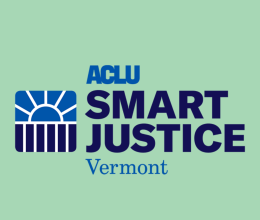This commentary was originally published on VTDigger on June 7, 2018.
When Vermonters go to the polls this year, they should be aware that of all the candidates on the ballot, one of the most powerful and least accountable — a public official many Vermonters know almost nothing about — is their local state’s attorney.
Elected prosecutors (called state’s attorneys in Vermont) have incredible power over the lives of Vermonters entangled in the criminal justice system, with ramifications for families, communities and taxpayers that we are only starting to appreciate. That power has increased over more than three decades of “tough on crime” laws, harsh sentencing schemes, and an absence of transparency. Over that time, Vermont’s incarceration rate has tripled, we now imprison black men at a higher rate than any other state, and we do it all at a cost of nearly $150 million per year.
But a new ACLU poll shows that Vermonters are rejecting the punitive mindset of decades past and demanding alternatives to Vermont’s costly over-reliance on incarceration. In that poll — conducted last month and surveying the views of likely voters statewide — two out of three respondents said it is important to reduce the number of Vermonters in prison, and that they are more likely to support elected prosecutors who shared that priority:
• Two out of three said they were more likely to support a candidate committed to reducing the number of incarcerated Vermonters by emphasizing alternatives to incarceration like drug treatment, mental health services, and restorative justice.
• 70 percent of respondents said that such alternatives would do more to prevent crime than longer and harsher criminal sentences.
• The majority of Vermonters think that prosecutors should respond to the opiate crisis by focusing on a public health response. Sixty-three percent were more likely to support a candidate committed to ensuring that people struggling with addiction receive treatment, not prison time.
Another encouraging sign is that Vermonters, regardless of political party, want to know more about the decisions prosecutors are making in their name. Seventy-two percent — including 60 percent of Republicans, 78 percent of Democrats, and 92 percent of Progressives — said they would be more likely to support a candidate who committed to making prosecutors’ decisions more transparent by sharing their policies and data with the public. Seventy-seven percent said they would be more likely to vote for a candidate committed to holding prosecutors and police officers accountable for misconduct, including 67 percent of Republicans, 68 percent of Progressives, and 84 percent of Democrats.
The poll also reflected a dynamic that keeps some elected prosecutors in office even when their practices are out of line with their constituents’: too many people still don’t know who their state’s attorney is or what they do. Almost half of Vermonters — 42 percent — said they know only a little or nothing at all about their state’s attorney’s responsibilities. But after hearing a brief description, the vast majority — 92 percent — agreed that state’s attorneys play an important role in the community.
State’s attorneys are elected officials, and at the end of the day, they answer to us. It’s clear that if we’re going to reverse decades of damaging and wasteful criminal justice policies, prosecutors will have to be a big part of the solution. And that’s why it’s so important for Vermonters who want to build a more fair and just state to learn where their state’s attorney candidates stand on criminal justice — and start holding them accountable.
This week, the ACLU sent a survey to the candidates running for state’s attorney in this year’s election, asking them to state their positions on a range of criminal justice issues impacting all Vermonters. Their responses will be published in a voter guide later this month and give Vermont voters a much-needed way to engage with one of the most influential elected officials in their community.
For their part, Vermont’s state’s attorneys should listen to their constituents and pursue reforms long overdue, both at the county level and at the Legislature: more alternatives to incarceration, the elimination of racially biased outcomes, a more treatment-centered approaches to addiction and mental health, and continued progress in reducing Vermont’s incarceration rate. If they do that, they can be confident that the majority of Vermonters are behind them.
